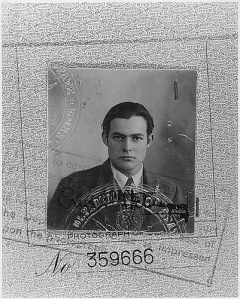My Boyfriend Wrote a Book About Me
By: Hilary Winston
 I thought this was going to be a book of funny essays. Something along the lines of Chelsea Handler or Mindy Kaling (but never Tina – no one can hold a candle to Tina). My assumption was not unfounded – the title is semi-ironic, Winston writes for Community, and the book is even described as “funny” on the dust jacket (I went back and checked)
I thought this was going to be a book of funny essays. Something along the lines of Chelsea Handler or Mindy Kaling (but never Tina – no one can hold a candle to Tina). My assumption was not unfounded – the title is semi-ironic, Winston writes for Community, and the book is even described as “funny” on the dust jacket (I went back and checked)
I was so wrong. This book is not funny. It’s just sad.
My Boyfriend Wrote a Book About Me recounts all of Winston’s “adventures” in dating and relationships. She airs all of her dirty laundry including her body weight issues, her deep love of her cat (even though he pees everywhere), her first asshole boyfriend and her latest asshole boyfriend (see: the book’s title), her mom’s battle with cancer, and every awkward date and sexual encounter she’s ever had. Winston has a lot to work with – there is plenty of room for funny commentary – but every single story came across as pathetic and sad. If you’re getting over a horrible break-up and need some outside validation that men suck and that everyone’s life is terrible, then this is the book for you. If you’re looking for a light read and a few laughs, then turn your attention elsewhere.
Don’t get me wrong – this wasn’t a bad book. Winston is a decent writer and I ripped through the book pretty quickly. I just feel duped. I went in expecting to at least giggle out loud a few times and instead came out feeling incredibly sorry for this poor girl.
Side note: A quick Google search showed me that Winston’s titular ex-boyfriend actually exists and he actually wrote a book that references her. If it’s any consolation, he looks like a real jerk-store and she’s clearly better off without him.
In a nutshell: Two and a half stars. This book needs a marketing makeover.







